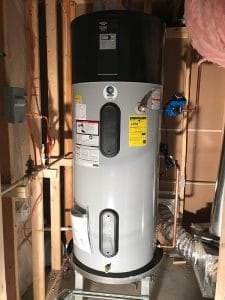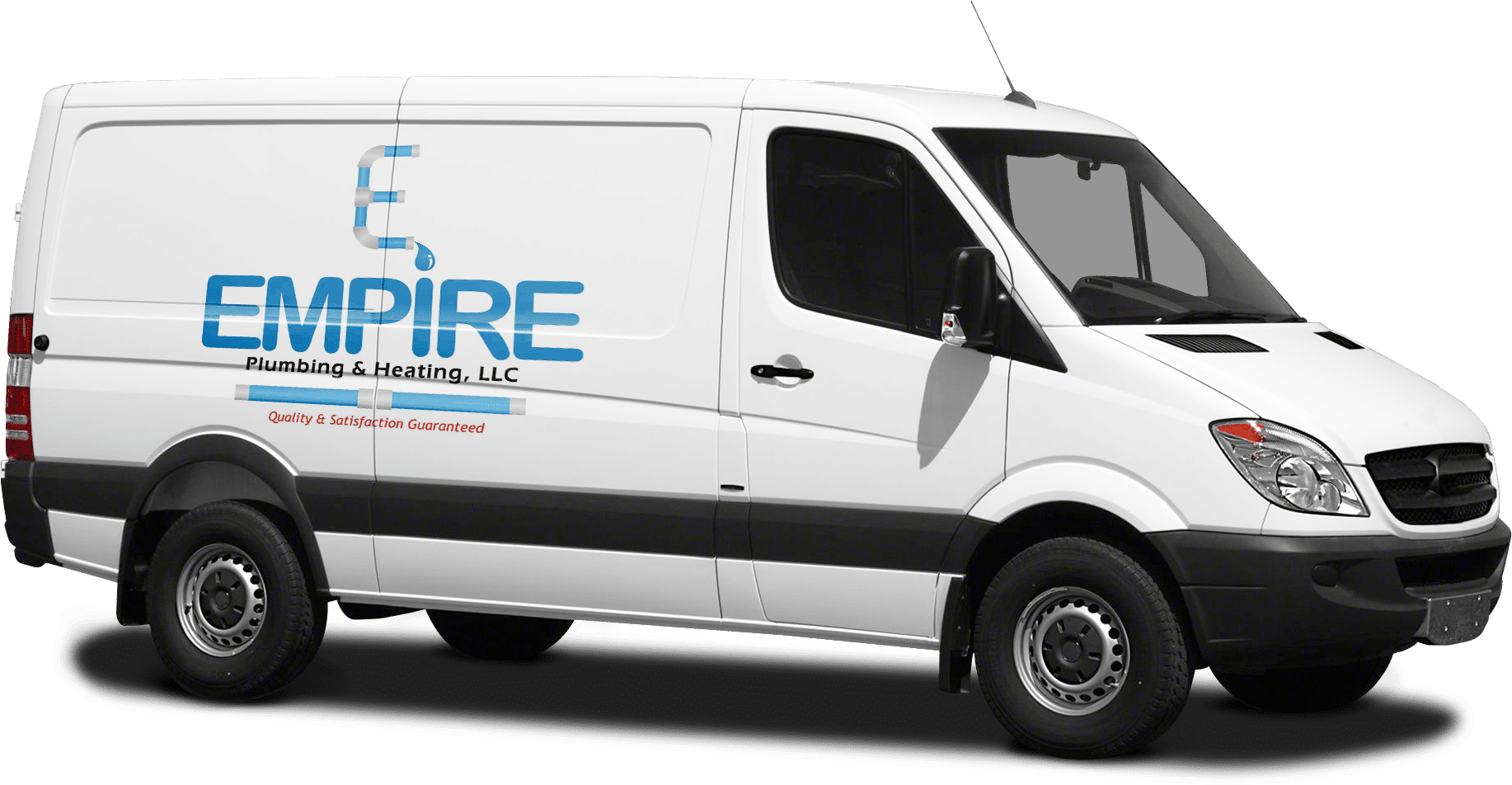A traditional water heater is a storage tank that stores hot water until it is needed. When you turn on the hot water tap, the water is drawn from the storage tank and heated as it flows through the pipes. Traditional water heaters use a heating element, either electric or fueled by natural gas, propane, or oil, to heat the water in the storage tank.
A tankless water heater, on the other hand, does not have a storage tank. Instead, it heats the water on demand as it flows through the pipes. Tankless water heaters use a heating element, either electric or fueled by natural gas, propane, or oil, to heat the water as it flows through the unit.
There are a number of differences between traditional and tankless water heaters. One of the main differences is the size and installation requirements. Traditional water heaters require a storage tank, which can take up a significant amount of space, while tankless water heaters are much smaller and can be installed on a wall or in a cabinet. Tankless water heaters also have a longer lifespan than traditional water heaters, as they do not have a storage tank that can rust or corrode over time.
Another difference between traditional and tankless water heaters is the efficiency and energy usage. Tankless water heaters are generally more energy efficient than traditional water heaters, as they do not have to heat and maintain a large storage tank of hot water. This can result in lower energy bills and a smaller carbon footprint. However, tankless water heaters may have a higher initial cost than traditional water heaters, as they are more complex and require specialized installation.
Overall, the choice between a traditional and tankless water heater will depend on your needs and budget. Traditional water heaters are a good option for households that use a moderate amount of hot water and have sufficient space for a storage tank. Tankless water heaters are a good option for households that use a lot of hot water and want a more energy-efficient and space-saving solution.
The lifespan of a water heater depends on a number of factors, including the type of water heater, the quality of the unit, and the water conditions in your area. In general, water heaters can last anywhere from 8 to 12 years, with some units lasting even longer.
Tank-style water heaters, which are the most common type of water heater, typically last between 8 and 12 years. Tankless water heaters, which do not have a storage tank and heat the water on demand, have a longer lifespan and can last up to 20 years or more. However, tankless water heaters may require more maintenance and have a higher initial cost than tank-style water heaters.
The lifespan of a water heater can also be affected by the water conditions in your area. Hard water, which has a high mineral content, can shorten the lifespan of a water heater by causing scale buildup on the heating elements and inside the storage tank. Regular maintenance and water treatment can help extend the lifespan of a water heater and ensure it is operating efficiently.
Overall, the lifespan of a water heater will depend on a number of factors, and it is important to be aware of the age and condition of your unit. If your water heater is approaching the end of its lifespan, it may be time to consider replacing it with a new unit.
Water heater maintenance is the process of ensuring that a water heater is operating safely, efficiently, and effectively. This may include tasks such as cleaning the heater, inspecting and replacing worn parts, and adjusting the temperature settings.
Some specific maintenance tasks that may be recommended for a water heater include:
Flushing the tank: Over time, sediment can build up in the bottom of the water heater tank. Flushing the tank can help remove this sediment, which can improve the heater’s efficiency and extend its life.
Checking and replacing the anode rod: The anode rod is a metal rod that is inserted into the water heater tank to protect it from corrosion. It should be checked periodically and replaced if it is severely corroded.
Checking the temperature and pressure relief valve: The temperature and pressure relief valve is a safety feature that is designed to release excess pressure from the water heater if it becomes too high. It is important to test this valve regularly to ensure that it is functioning properly.
Checking and cleaning the burner: The burner is the component that heats the water in the tank. If it is dirty or clogged, it may not function properly, leading to inefficient heating or even a malfunction.
It is generally recommended to perform water heater maintenance at least once a year, or as recommended by the manufacturer. It is also a good idea to keep an eye out for any issues or problems with the heater and address them promptly to avoid more serious problems down the line.
Tank-style water heaters, which are the most common type of water heater, typically last between 8 and 12 years. Tankless water heaters, which do not have a storage tank and heat the water on demand, have a longer lifespan and can last up to 20 years or more. However, tankless water heaters may require more maintenance and have a higher initial cost than tank-style water heaters.
The lifespan of a water heater can also be affected by the water conditions in your area. Hard water, which has a high mineral content, can shorten the lifespan of a water heater by causing scale buildup on the heating elements and inside the storage tank. Regular maintenance and water treatment can help extend the lifespan of a water heater and ensure it is operating efficiently.
Overall, the lifespan of a water heater will depend on a number of factors, and it is important to be aware of the age and condition of your unit. If your water heater is approaching the end of its lifespan, it may be time to consider replacing it with a new unit.
There are several reasons why it may take a long time to get hot water from your faucet or shower. Some possible causes include:
The water heater is too far from the faucet or shower: If the distance between the water heater and the faucet or shower is too great, it may take longer for the hot water to reach the point of use.
The water heater is not large enough for the household’s needs: If the water heater is not large enough to meet the demand for hot water in the household, it may take longer for hot water to be available.
The water heater’s thermostat is set too low: If the thermostat on the water heater is set too low, it may take longer for the water to reach the desired temperature.
The water heater is not working properly: If the water heater is not functioning properly, it may take longer for the water to be heated. This could be due to issues such as a faulty heating element, a malfunctioning thermostat, or a build-up of sediment in the tank.
The hot water pipes are not insulated: If the hot water pipes are not insulated, heat can be lost as the water travels through the pipes, resulting in a longer wait time for hot water.
If you are experiencing a long wait time for hot water, it is a good idea to try to determine the cause of the issue and take steps to fix it. This may involve checking the thermostat setting, inspecting the water heater for problems, or adding insulation to the hot water pipes.

OUR CLIENT
TESTIMONIALS




REQUEST A QUOTE
Quick Links
Contact Us
Quick Links
Contact Us